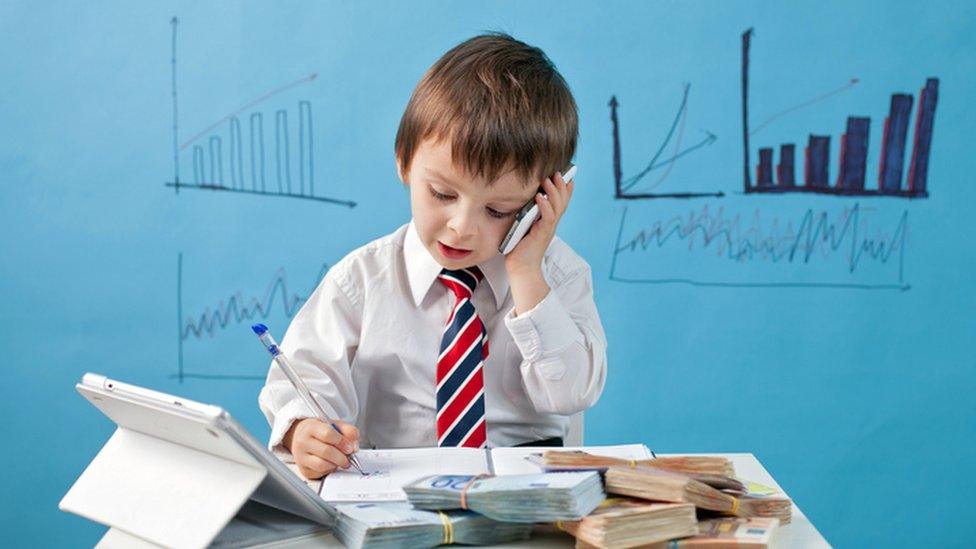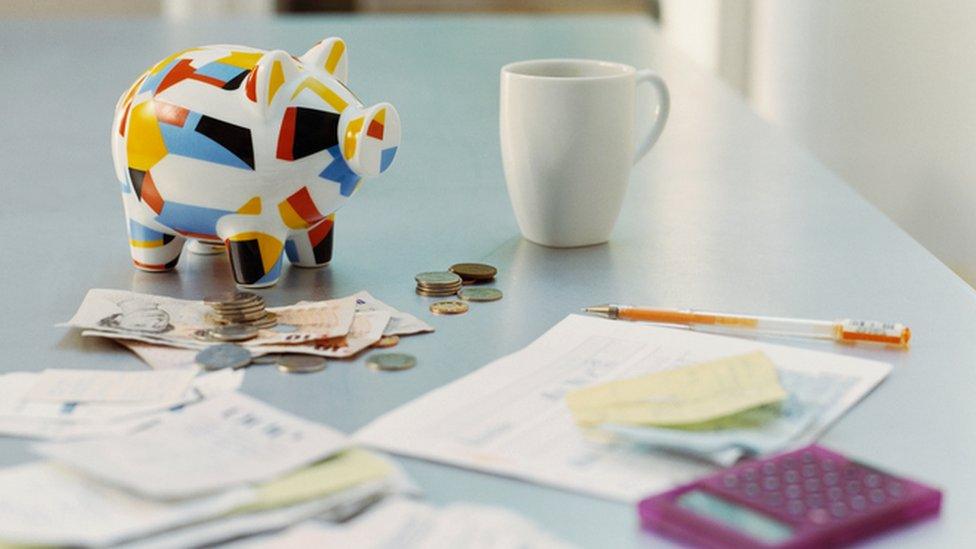Parenting: it's payback time
- Published

Father's Day: a commercial opportunity to lavish crass cards and tacky tankards on dads.
Or less cynically, it's a time to consider what it is to have a dad, and what he means to you.
It's a day also to reflect on what it is to be one, or perhaps to ruminate on all the things you might have done if you hadn't followed the biological urge to have sprogs.
And that's where economics comes in. The so-called dismal science has a habit of taking life's little mysteries and extracting all the fun from them with the simple device of an X and a Y axis. It turns common sense decisions into impenetrable algebra.
Every month, I'm sent the latest from the Economic Journal, which I skim to see what the pointy-heids have been up to. Last month, I learned that extrovert behaviour can influence the productivity of men and women in opposite ways.
There was research into the risk perceptions of downhill skiers. And you can find robust evidence for the obvious: those at the rough end of inequality think they're likely to stay there, resource booms mean high-paying jobs, which disappear when the bust comes.
But then an article from this flagship of the august Royal Economic Society caught my eye and forced me to look down the economists' end of life's telescope, to see things differently.
Child labour
It asked the reader to imagine this: what if the choice of having children were an investment decision? What if you could have offspring, spend a huge sum upfront on rearing, feeding, watering, and educating them, and then, hand them the bill?
They would be contractually bound to give you, the parent, their earnings.

It's not such an outrageous idea, argue Juan Carlos Córdoba of Iowa State University and Marla Ripoll at the University of Pittsburgh.
They point out that if you go back to the first half of the 19th century in America and in Britain, children were a source of income. From an early age, parents were entitled to their wages.
Successive laws against child labour ended that practice. It became illegal or just immoral to burden your children with debt.
And that, they claim, is directly linked to the sharp reduction in the fertility rate. If the children couldn't earn in the cotton mills, then they were more of a financial burden, and having them was a less attractive economic choice.
Fertility and mortality
There were other factors. A high child mortality rate meant that large families became a form of hedge against the risk of death. And there is a well-established link between men and women become more educated, then tending to see the attraction of having smaller families.
Yet even allowing for these effects, this American research concludes that the decision to have children has a direct link to the economic cost.
And if children could be treated as an investment, the fertility rate could be expected to rise.

These economists have put some numbers to it. They say the average cost, for low-income parents, of raising an American child to the age of 17 is (translated from US dollars) £104,000.
That covers housing, food, transport, healthcare, clothing, childcare and any private expenses for education.
To that, you can add the cost of a parent's time, measured in wages not earned. Total investment in Junior is somewhere between £260,000 and £400,000.
Smooth consumption
So, what about payback time? The researchers say the present value of the lifetime earnings of a low-income child are £460,000. A profit of at least £56,000.
For higher income couples, the investment is significantly higher, and so are the returns.
With savings account rates barely visible, and the FTSE 100 index back below 6000, a return like that looks quite attractive. However, I should add that asset values can fluctuate, and investors can't be sure to get their capital sum back - if, for instance, your child turns out to be a feckless layabout.
The reason children aren't seen as an investment is striking for being so straightforward: those selfish kids tend to spend their future earnings on themselves.
If they don't pay back on the investment, or look after the old man in his dotage, then there's a case for balancing the spend on family with saving for care costs in older age - what economists call 'smoothing consumption over the life cycle, instead of having more children and smoothing it over family members in a process of inter-generational transfers.'
The joy of parenting
What this research doesn't seem to ask (though I may have lost it in the algebra somewhere)is how your children are supposed to find the money with which to invest in rearing your grandchildren.
This thought game could, if you follow the logic far enough, be the spur to a big population boom in one generation, followed by the wipeout of humanity in the next one. Unless, that is, there is a mechanism for recycling the payback to the older generation.
The other concept with which these economists struggle is that of wellbeing. It's hard to factor the enjoyment of parenting into an econometric model.
It's just my hunch, but most parents seem to choose to have children because it seemed like a good idea at the time, or because it was a bit of an accident. Not many consult their financial adviser on parenting as part of a balanced investment portfolio.
Whatever your reckoning, if you're a dad, and wondering where the years and the money went: Happy Father's Day.